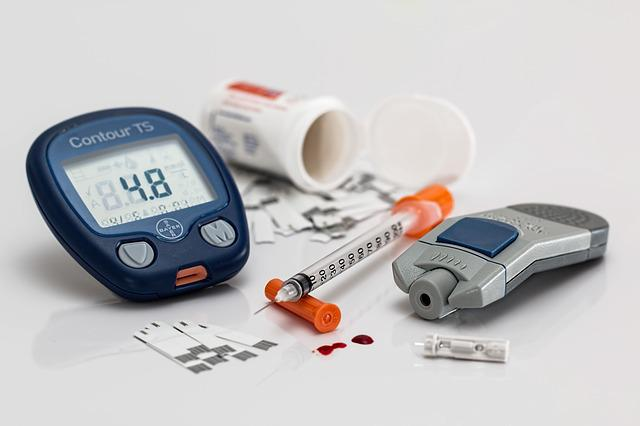Living as a senior or with diabetes can be a challenge, especially since you are at a higher risk. but it’s important to stay positive and manage your health as best you can. Here are some tips for living a happy life with diabetes as a senior.
How Do You Know You Have Diabetes
There are several ways to diagnose diabetes. Health care professionals can use a variety of tests to screen for the disease, and a diagnosis is usually confirmed with a blood test. However, the best way to diagnose diabetes is to see a health care professional such as a diabetes educator or doctor. These health care professionals can provide advice on how to manage the disease and can offer support and resources. In addition, they can help to identify any underlying health conditions that may be causing the diabetes. As a result, seeing a health care professional is the best way to ensure an accurate diagnosis and to get the support and information you need to manage the disease.
Different Types of Diabetes
There are several different types of diabetes, each with its own set of causes and risk factors. The two most common forms of diabetes are type 1 and type 2. Type 1 diabetes is caused by an autoimmune reaction that permanently destroys the insulin-producing cells in the pancreas, while type 2 diabetes is often associated with other health conditions such as obesity and gestational diabetes. In addition, people who have gestational diabetes or are at high risk for developing diabetes may need to work closely with a health care team in order to manage their condition effectively. Whatever the type of diabetes, understanding the underlying mechanisms and risk factors can help people take steps to reduce their risk and maintain good overall health.
Understand Diabetes And Its Effects
Diabetes is a serious medical condition that many seniors and older adults get which has devastating effects on both the body and mind of an affected individual This chronic metabolic disorder affects the way in which your body processes glucose and is often characterized by symptoms such as fatigue, frequent urination, extreme thirst, hunger, blurred vision, and irritability. If left untreated, diabetes can result in high blood pressure, cardiovascular disease, kidney failure, nerve damage, and mental issues such as depression or cognitive decline.
Therefore, it is crucial for anyone who may be at risk for diabetes to understand what this condition is and how it can be managed or prevented. By making healthy lifestyle choices such as maintaining a healthy diet and getting regular exercise, you can take an important step towards keeping yourself safe from this dangerous disease.
Take Care Of Your Health With A Healthy Diet And Exercise
Nowadays, with the development of the society, people’s living standards are gradually improving. And people gradually realize the importance of health. A healthy diet and regular exercise are the two most important things we can do to stay healthy.
A healthy diet includes eating a variety of foods from all the food groups in the right amounts. Eating a variety of foods ensures that you get all the nutrients your body needs. It is also important to eat moderate amounts of food. Eating too much can lead to weight gain and eating too little can lead to malnutrition.
Regular exercise is essential for good health. Exercise helps to control weight, reduces the risk of heart disease, stroke, diabetes, and high blood pressure. It also helps to reduce stress, improve mood, and promote better sleep. People of all ages can benefit from being physically active.
So, in order to stay healthy, it is important to maintain a healthy diet and exercise regularly.
Manage Your Blood Sugar Levels
Managing your blood glucose levels is an important part of maintaining your overall health and to manage diabetes. When you have high blood sugar levels, it can increase your risk for serious health conditions like heart disease, stroke, and diabetes. Fortunately, there are a number of things you can do to keep your blood sugar levels in check. Eating a healthy diet, staying active, and monitoring your blood sugar levels on a regular basis are all key components of managing your blood sugar levels.
By taking these steps, you can make sure your blood sugar levels rise, or maintain low blood sugar, stay under control and reduce your risk for developing serious health problems down the road.
Diabetes Treatment
Diabetes medication is a common diabetes treatment. There are many different diabetes medications, and they work in different ways to lower blood sugar levels. Some diabetes medications work by stimulating the release of insulin from the pancreas. Other diabetes medications work by increasing the sensitivity of cells to insulin. still, other diabetes medications slow the absorption of sugar from the digestive tract. The type of diabetes medication that you take will depend on your individual needs. Your doctor will work with you to determine the best diabetes treatment for you. diabetes medication is just one part of diabetes treatment. You will also need to make lifestyle changes, such as eating a healthy diet and getting regular exercise.
Making these lifestyle changes can help you control your blood sugar levels and prevent diabetes complications.
Stay Positive And Don’t Let Diabetes Get You Down
As anyone with diabetes knows, it can be easy to get down about the disease. After all, it requires constant vigilance and care, and there is always the risk of serious complications. However, it is important to stay positive and not let diabetes get you down. First of all, remember that you are not alone. More than 30 million Americans have diabetes, and you can find support from many different sources. In addition, there are now more treatments and tools available than ever before to help you manage your diabetes. So take heart and stay positive—with the right attitude, you can overcome anything.
Connect With Other Seniors Living With Diabetes
Diabetes is a chronic condition that affects millions of people worldwide. While it can occur at any age, seniors are especially susceptible to developing diabetes. If you are a senior living with diabetes, it is important to connect with others who understand what you are going through. There are many support groups and forums available online, as well as in-person support groups in many communities. These groups can provide valuable information and support, and they can also be a great way to make new friends. In addition, your healthcare team can put you in touch with other resources that can help you manage your diabetes. So don’t go it alone – reach out and connect with others who know what you’re dealing with.
Get Support From Family And Friends
When faced with a difficult situation, it can be helpful to reach out to your family and friends for support. These individuals understand you on a deeper level than most other people, and they are often willing and able to provide emotional and practical assistance. They may be able to offer words of encouragement, offer to babysit your kids, or even just lend an ear when you need to vent your frustrations. In addition, maintaining strong connections with family and friends can help you cope more effectively in difficult times and improve your overall mental health. So whether you are going through a period of stress or dealing with a major life change, don’t hesitate to reach out for support from those closest to you. Your loved ones will almost always be glad to help.
Talk To Your Doctor About Any Concerns Or Questions You May Have
It’s important to talk to your doctor about any concerns or questions you may have. Your doctor can help you manage your health and wellbeing, and they can also provide you with information and resources that can help you make informed decisions about your health. If you’re worried about a particular symptom or condition, don’t hesitate to bring it up with your doctor. They’ll be able to provide you with an evaluation and recommendations for treatment, if necessary. Even if you’re not sure if something is a problem, it’s always better to err on the side of caution and bring it up with your doctor. They can put your mind at ease and help you get the information and care you need.
Conclusion
Living with diabetes can be a challenge, but by taking the right steps, you can manage your blood sugar levels and stay healthy. Stay positive, connect with other seniors living with diabetes, get support from family and friends, and talk to your doctor about any concerns or questions you may have. With these tools in your arsenal, you’ll be able to overcome anything and live a happy life with diabetes as a senior.






























